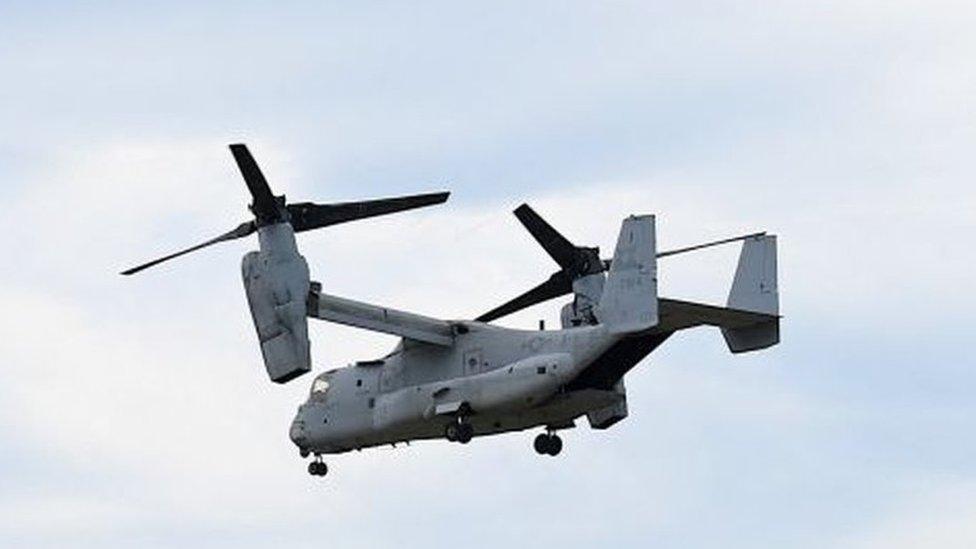Six bodies found in wreck of US Osprey aircraft crash near Japan
- Published
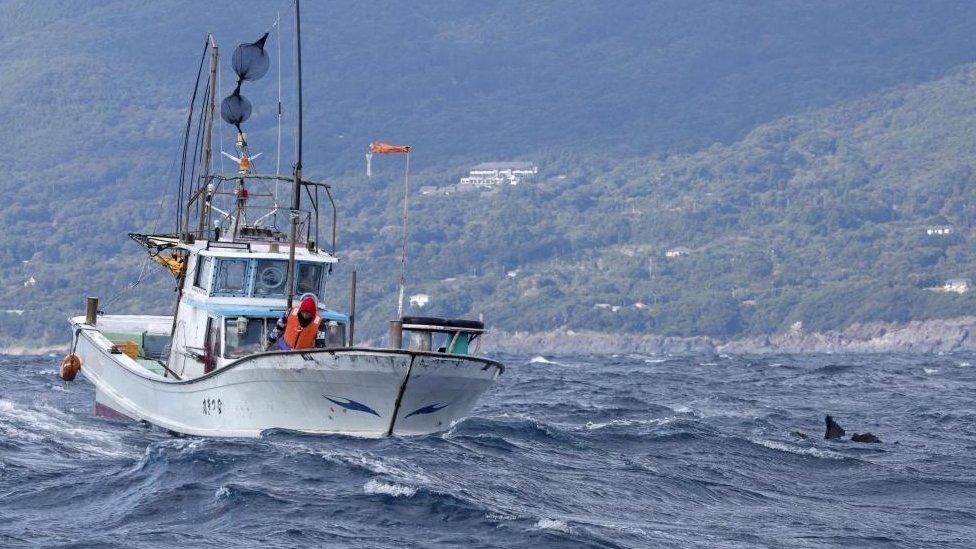
The crash of the Osprey sparked a large search effort by US and Japanese teams
American and Japanese search teams have found six bodies in the wreckage of a US military aircraft that crashed near Yakushima island last week.
The aircraft, a CV-22 Osprey hybrid plane, was carrying eight people when it crashed last week. The remains of two airmen are still missing.
All eight airmen have been identified, but only three of the six bodies found have so far been recovered.
The crash prompted Tokyo to ask the US to ground its Osprey planes in Japan.
At the time of the crash, the Osprey had been on a training flight from a US Marine Corps air base in Yamaguchi Prefecture and was headed towards Kadena Air Base in Okinawa.
It requested an emergency landing on Yakushima island before crashing offshore.
Eyewitnesses later reported that the aircraft flipped over and was on fire before crashing. The cause of the incident remains unclear.
In a statement on Tuesday, US Air Force Special Operations Command said that the military has now transitioned from "search and rescue operations to search and recovery operations".
The transition, the statement added, occurs "when the determination is made that survivors are unlikely".
Air Force officials have released the names of all eight airmen involved in the incident:
Maj Jeffrey T Hoernemann, 32, from Andover, Minnesota
Maj Eric V Spendlove, 36, from St George, Utah
Maj Luke A Unrath, 34, from Riverside, California
Capt Terrell K Brayman, 32, from Pittsford, New York
Tech Sgt Zachary E Lavoy, 33, from Oviedo, Florida
Staff Sgt Jake Turnage, 25, from Kennesaw, Georgia
Senior Airman Brian K Johnson, 32, from Reynoldsburg, Ohio
Staff Sgt Jake Galliher, 24, Pittsfield, Massachusetts
Lt Gen Tony Bauernfeind, the commander of Air Force Special Operations Command, said "the depth of sorrow is immeasurable" for those impacted by this mishap. "The honourable service of these eight Airmen to this great Nation will never be forgotten, as they are now among the giants who shape our history," he said.
Units from the US and Japanese military will now focus on locating the remains of the two airmen that are still missing and aircraft debris. The remains of three airmen are in the process of being recovered.
First introduced in 2007, Ospreys function both as a helicopter and an aircraft with a propeller.
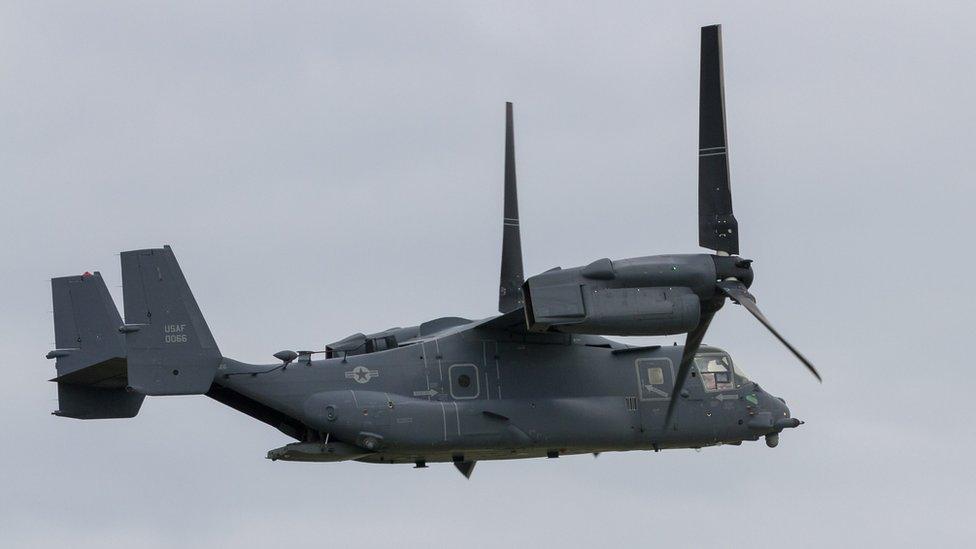
US military Ospreys have been involved in several other deadly crashes in recent years
But the deadly crash has once again sparked concerns about the safety of the aircraft.
In a separate incident in August, a different model Osprey crashed during a military exercise in Australia, killing three US Marines and injuring 20 others.
Another crash involving an Osprey in the California desert last year caused the deaths of five Marines.
Japan - the only other nation to operate Ospreys - temporarily grounded its own fleet of the aircraft last week.
It also asked the US to ground the 30 Ospreys it had based in Japan until inspections could be carried out to confirm their safety.
When asked by the BBC about safety precautions in the wake of the most recent crash in Japan, the Pentagon said that the unit to which the aircraft belonged is "not conducting flight operations" and that the US "is taking all appropriate safety measures, as we do for every flight and every operation".
As part of a Japan-US military agreement, Japan will largely be excluded from the investigation into the crash.
This rule and the US refusal to ground its fleet prompted anger in Japan.
Pentagon deputy press secretary Sabrina Singh said the US has "already started sharing information about the accident with our Japanese partners". "We have good communications between our senior leaders and are in constant dialogue regarding aviation safety and other safety-related issues."
Related topics
- Published30 November 2023
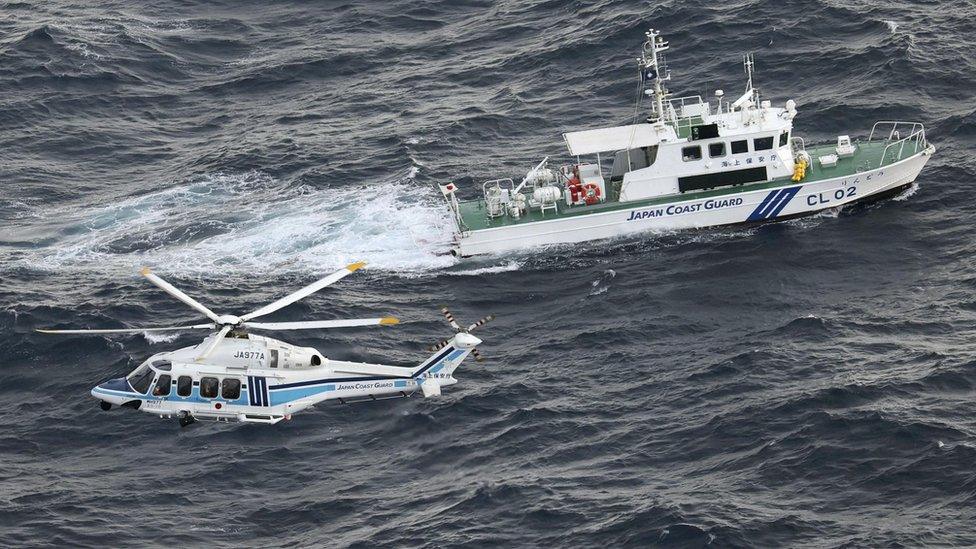
- Published29 November 2023
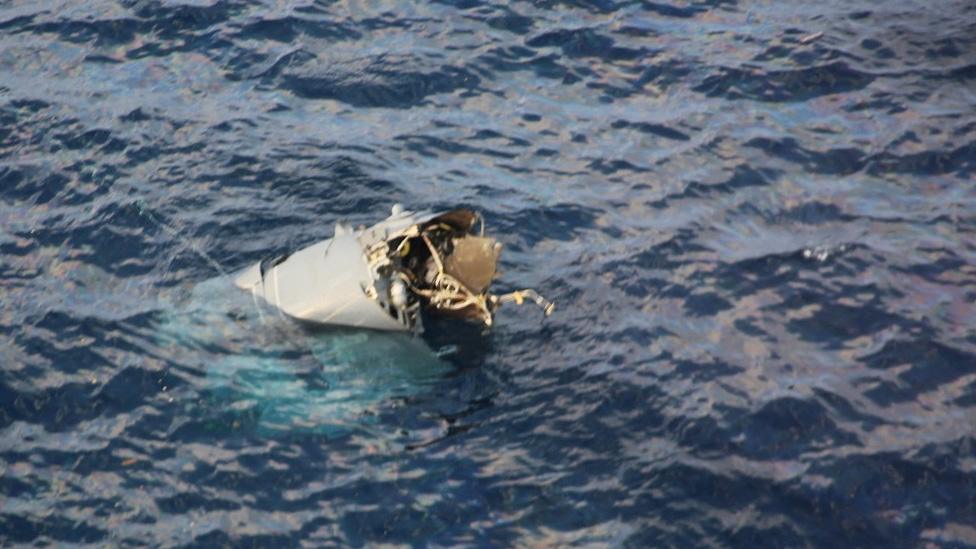
- Published27 August 2023
